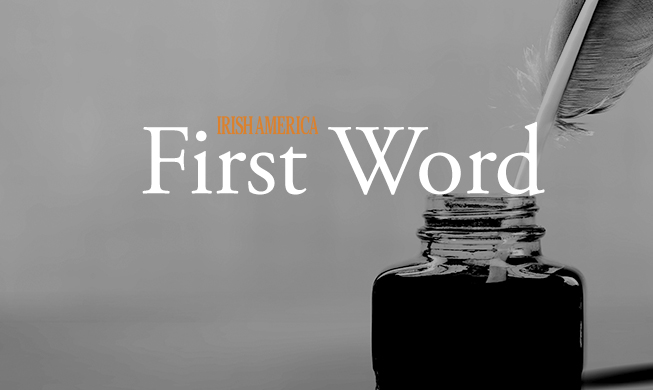
Bear in mind these dead:
I can find no plainer words.
– John Hewitt, “Neither an Elegy nor a Manifesto”
The New Year brings good tidings to a young couple I know, the birth of a baby boy, a welcome addition to their ever expanding family.
Unlike his mother, a Belfast native, this boy will grow up outside the danger zone of “The Troubles” in Northern Ireland.
Other children are not so lucky. On September 3, 1971, Angela Gallagher, 1, was shot in her pram during an IRA sniper attack on a British Army patrol in Iveagh Crescent, Falls, Belfast. On December 4 the same year, Marie McGurk, 14, was killed in a UVF bomb attack on McGurk’s Bar, New Lodge, Belfast. On December 11, 1971, Tracey Munn, 2, was killed in an IRA bomb attack on Balmoral Furnishing Co., Shankill Road, Belfast. Colin Nicholl 1, died in the same attack. On April 22, 1972, Francis Rowntree, 11, was killed by a British Army rubber bullet in Divis Flats, Belfast. On May 14, 1972, Martha Campbell, 13, was shot by loyalists while walking along Springhill Avenue, Ballymurphy, Belfast.
The list goes on and on, page after page: Date; Name; Age; Status; Killed by; Circumstances.
Devastating in its simplicity, An Index of Deaths from the Conflict in Ireland, published in 1994, was compiled by Malcolm Sutton, as a memorial to those killed in “The Troubles.” The children listed above appear in the first couple of pages, their names mingled in with those of men and women, and youths barely out of their teens. In all 3,285 names, all of those who died between July, 1969 and December 31, 1993, are listed; not included are the almost two hundred killed in the last four years.
We on the outside can only imagine, what it’s like to lose a child or a loved one in such a senseless way. Or to live in this society of death and destruction and sorrow and imprisonment. How can we understand the bitterness, grief, and utter devastation that each one of these deaths brought with it?
One of the most stirring columns I ever read on the North, which increased my under-standing, was written by Gary McMichael in the Dec. 17 issue of the Irish Voice. He wrote on the 10th anniversary of the death of his father, who was killed by an IRA car bomb.
“We go though our lives understanding the reality of being captured in a society at war with its self, but only those who have experienced its effects directly can appreciate the true horror of the conflict. Some 3,500 families, some of them friends, have undergone the same experience I have. I often wonder how such tragedy has affected the people in each of those families, and how it has altered their lives.
“…I, for one, cannot bring myself to forgive those who took a piece of my life away. But each of us has a responsibility not to become so embittered that we prevent our society from moving forward.”
Today, Gary McMichael, who was just 18 when his father was killed, is the leader of the Ulster Democratic Party, and one of the participants in the all-party talks. In December, the talks broke for Christmas, having failed to agree on key issues or a format for resolving those issues when they resume on January 12.
In Derry, on December 13, over 1,000 petrol bombs, many tossed by children as young as seven and eight years of age, were pelted at police. More than 150 plastic bullets were fired in return by the RUC, whose decision to shut off members of the Bogside community during an Apprentice Boys march, caused the riot.
With all-party talks set to conclude in May 1998, there are difficult times ahead. Tough decisions, and accommodations must be made and bitterness put aside, so that another generation is not lost. Twenty-four thousand, five hundred and eighty-two babies were born in Northern Ireland in 1996, and around the same number in 1997. What will their future bring?
On December 10, a Protestant mother and a Catholic father, became the proud parents of a baby boy who is the inheritor of two traditions, and two Irelands, North and South. He was born in a place where it does not matter if his name is William or James. Perhaps his coming is a sign of good tidings.
Editor’s Note: This article was originally published in the January / February 1998 issue of Irish America. ⬥


Leave a Reply